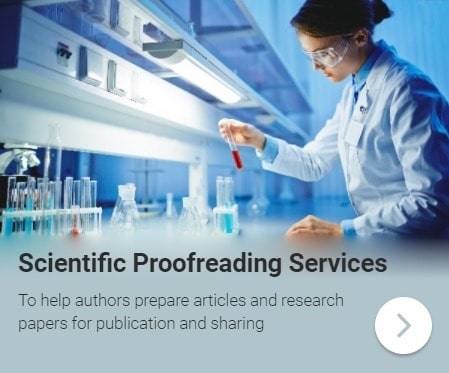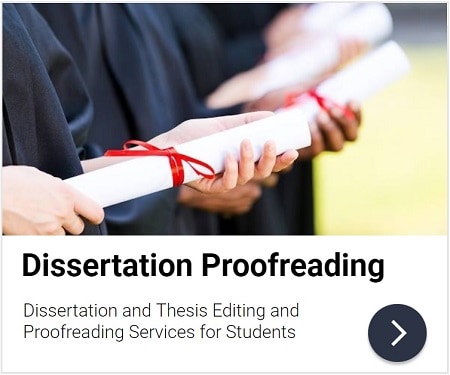5.3 Specialised Terminology and Jargon
Specialised or discipline-specific terminology is often necessary in a thesis because it can communicate with a precision that other words simply cannot manage, and doctoral candidates are expected to use the current terminology associated with their fields and disciplines. It is essential, however, to understand such language fully, to use it in clear and accurate ways and to use it only when it is necessary and effective, not simply because you can. Remember that discipline-specific terminology can be incredibly exclusive, and while it can come across as learned and sophisticated when used well, if used incorrectly, it creates a very different effect, so it should always be used thoughtfully and with great care. Your supervisor, committee members and external examiner will most likely be familiar with the specialised terminology associated with your discipline and topic, but not always and not with all terms, and your thesis may ultimately reach readers who will not understand all the specialised terminology associated with your discipline.
As a sound and common scholarly practice, then, any technical or specialised terms used in a thesis should be presented clearly and defined at least briefly on first use. It can also be helpful to explain the ideas behind any specialised terminology with precision and as thoroughly as necessary to allow readers to understand the significance of that terminology in relation to the methodology of your study and the argument of your thesis. The title and abstract in particular should be as accessible as possible even to general readers, because these parts of a thesis will ultimately be available in search engines (see Sections 1.1.1, 1.1.2, 3.5.1 and 4.2, and see also Section 6.1). Any abbreviations of specialised terminology should be used with the same precision as the original terms (see Section 6.3), and if a list or table is used to define terms or outline categories of any kind, special care should be taken to ensure that those terms and categories appear in exactly the same forms elsewhere in the thesis: readers will tend to return to such lists and tables for help if anything does prove confusing, so it is essential that the information in lists and tables provides clarity and resolution in relation to the terms and categories used in the thesis (see Section 4.4.1 and Section 5.5.2).
It is imperative that you do not use specialised terminology of any kind – technical or theoretical terms, for example – as a substitute for explaining ideas clearly and developing a logical argument. No matter how specialised or descriptive, the terminology will not do the work on its own, so in the harshest definition, such an approach is simply unsound scholarship and it is certainly unacceptable in scholarly writing. Some students may think that all the obscure terminology they have acquired will appear learned and lend that appearance to their theses, but more often such use of terminology will lead to an assumption among readers that an author does not know how to construct a true argument and also does not fully understand the language he or she is using.
Every thesis must present and develop an argument, no matter how simple or complex, and the best scholarly writing demonstrates not just a proficiency in using specialised terminology to communicate rather than obfuscate, but also a deep understanding of the ideas behind the terminology and an ability to explain those ideas effectively for readers while taking them (both ideas and readers) in new directions. It can be difficult, however, to determine when and where your terminology is supporting or conversely undermining your writing, especially if you are working in a discipline in which a large number of specialised terms, symbols, abbreviations and the like are absolutely necessary. Your supervisor and other committee members should be able to help you with striking the right balance with discipline-specific language, and if you are unsure of your usage and find that you receive no commentary on it, it is always better to ask and ensure you are on the right track than assume that all is well. Fellow students in your area and/or a professional academic or scientific proofreader might also prove helpful in this regard.
Closely related to specialised terminology is the jargon peculiar to a profession, field of study or context. Such jargon often includes specialised vocabulary, but also tends to use convoluted syntax or awkward word order and can prove to be unintelligible (or very nearly so) to readers. For instance, ‘a low young voter turnout election’ is simply poor English and not nearly as effective for communicating the author’s meaning as ‘an election with a low turnout of young voters.’ Jargon-rich language often arises when authors are so immersed in their respective fields of study (as is the case when working on a thesis) that they are unaware of their failure to communicate clearly in plain English, even to many in their own fields, so do keep your eyes attuned to this possibility as you proofread your chapters. Occasionally, jargon appears to be used deliberately to create an impression of learnedness or mystique. If you find yourself tempted to use jargon in this way, it is worth reflecting on the fact that the word ‘jargon’ is often defined in dictionaries as ‘meaningless writing,’ ‘vague language’ or ‘gibberish,’ and a doctoral candidate should have none of these forms of language in his or her thesis.
If readers do not understand what they are reading, any impression of the author’s learning that might be achieved through the use of jargon (and it seems doubtful to me that jargon could have this effect in any case) becomes frustrating instead of impressive, and while mystique certainly has its proper place, it is not in a carefully written doctoral thesis. It is therefore essential to avoid jargon or keep it to a bare minimum, and, if some jargon does prove necessary, to ensure that it is presented in as accessible a manner as possible with the meaning defined or explained on first use. Another kind of jargon is that used for social networking and other informal online communication: such abbreviated and often incorrect language is never appropriate for a thesis, so unless you are directly quoting and discussing such material, it should be strictly avoided.
Although words and phrases from foreign languages are not exactly specialised terminology, they do tend to be used in discipline-specific ways (in biological nomenclature, for example, and textual studies) and should be treated in special ways. For one, unless the words and phrases are already naturalised in the English language or are directly quoted and thus enclosed in quotation marks, they should appear in italic font. Like specialised terminology, words and phrases in foreign languages should be defined if not obvious so that readers will be able to follow the argument effectively, and this means translating them into English. Translations can vary significantly from the most literal to the most creative depending on exactly what you want your readers to understand when the word or phrase is used, and variant translations along with discussions of their significance may also be included in a thesis. The formatting used to provide words and phrases in foreign languages along with English translations should be both effective and consistent. When the foreign word or phrase appears in italics, for instance, the translation can be set either in quotation marks or parentheses, and when the original word or phrase appears in quotation marks, italics or parentheses might be used for the translation.
The following four examples demonstrate these different techniques, and notice that the translation in parentheses in the final example can be included inside or outside the quotation marks:
- sed noli modo, meaning ‘but not now’
- sed noli modo (but not now)
- ‘sed noli modo,’ meaning but not now
- ‘sed noli modo’ (but not now) or ‘sed noli modo (but not now)’
Whatever method you adopt for presenting foreign terms and their translations, it is essential to maintain consistency throughout your thesis. For further advice on using and formatting foreign languages in English writing, see Sections 6.2, 7.3.4 and 8.4 below; for more detailed information, see Butcher et al. (2006, Section 6.6, pp.246–247 and Appendices 5, 7, 9 and 10), the Chicago Manual of Style (2003, Chapter 10) and Ritter (2005, Chapter 12).
PRS Tip: Attending to the numerous details involved in using British or American spelling, effective hyphenation and specialised terminology correctly and consistently while simultaneously presenting complex content accurately and maintaining a sophisticated argument can be more than a handful even for experienced scholars who have mastered the writing of scholarly English. For doctoral candidates who are composing their first lengthy piece of academic or scientific work, it can be overwhelming. Fortunately, PRS uses professional proofreaders trained in a wide variety of disciplines and well versed in all the technicalities of scholarly writing. They can check, correct and generally improve these elements of your proposal and thesis chapters, ensuring that your spelling adheres to British or American English (and is simply correct throughout your work), that your use of hyphens expresses your meaning (and reflects acceptable usage more generally) and that your use of discipline-specific terminology (indeed of all terminology) enhances your meaning and communicates clearly and effectively with an educated reader. It is always wise to resolve any problems associated with such elements of your prose early in the thesis process so that you can practise correct usage patterns when drafting later chapters and save yourself extensive revisions (and a great deal of time and effort) further down the road. Perhaps you have drafted an early chapter that is causing you particular worry because you are just not sure whether you are using discipline-specific terminology effectively or conforming to British or American English consistently. If so, do not hesitate to send your chapter to PRS along with any guidelines you are following – there is no time like the present to benefit from the expert advice of a professional scholarly proofreader.
Why PhD Success?
To Graduate Successfully
This article is part of a book called "PhD Success" which focuses on the writing process of a phd thesis, with its aim being to provide sound practices and principles for reporting and formatting in text the methods, results and discussion of even the most innovative and unique research in ways that are clear, correct, professional and persuasive.
The assumption of the book is that the doctoral candidate reading it is both eager to write and more than capable of doing so, but nonetheless requires information and guidance on exactly what he or she should be writing and how best to approach the task. The basic components of a doctoral thesis are outlined and described, as are the elements of complete and accurate scholarly references, and detailed descriptions of writing practices are clarified through the use of numerous examples.
The basic components of a doctoral thesis are outlined and described, as are the elements of complete and accurate scholarly references, and detailed descriptions of writing practices are clarified through the use of numerous examples. PhD Success provides guidance for students familiar with English and the procedures of English universities, but it also acknowledges that many theses in the English language are now written by candidates whose first language is not English, so it carefully explains the scholarly styles, conventions and standards expected of a successful doctoral thesis in the English language.
Individual chapters of this book address reflective and critical writing early in the thesis process; working successfully with thesis supervisors and benefiting from commentary and criticism; drafting and revising effective thesis chapters and developing an academic or scientific argument; writing and formatting a thesis in clear and correct scholarly English; citing, quoting and documenting sources thoroughly and accurately; and preparing for and excelling in thesis meetings and examinations.
Completing a doctoral thesis successfully requires long and penetrating thought, intellectual rigour and creativity, original research and sound methods (whether established or innovative), precision in recording detail and a wide-ranging thoroughness, as much perseverance and mental toughness as insight and brilliance, and, no matter how many helpful writing guides are consulted, a great deal of hard work over a significant period of time. Writing a thesis can be an enjoyable as well as a challenging experience, however, and even if it is not always so, the personal and professional rewards of achieving such an enormous goal are considerable, as all doctoral candidates no doubt realise, and will last a great deal longer than any problems that may be encountered during the process.
Interested in Proofreading your PhD Thesis? Get in Touch with us
If you are interested in proofreading your PhD thesis or dissertation, please explore our expert dissertation proofreading services.


Services
PhD Dissertation Proofreading
Our PhD dissertation proofreaders specialise in improving grammar, sentence structure, citations, references, clarity, logical flow and readability.
Master’s Dissertation Proofreading
To avoid failure and its consequences, send your dissertation to our master’s dissertation proofreading service.
Scientific Dissertation Proofreading
Our scientific proofreaders specialise in correcting and perfecting the language, editorial styles and references across all science fields.
Headquarters
Dissertation-Proofreading.com
Allia Future Business Centre
The Guildhall
Market Square
Cambridge
CB2 3QJ
United Kingdom
More Expert Proofreading Services
Journal Editing
Journal article editing services
PhD Thesis Editing
PhD thesis editing services














